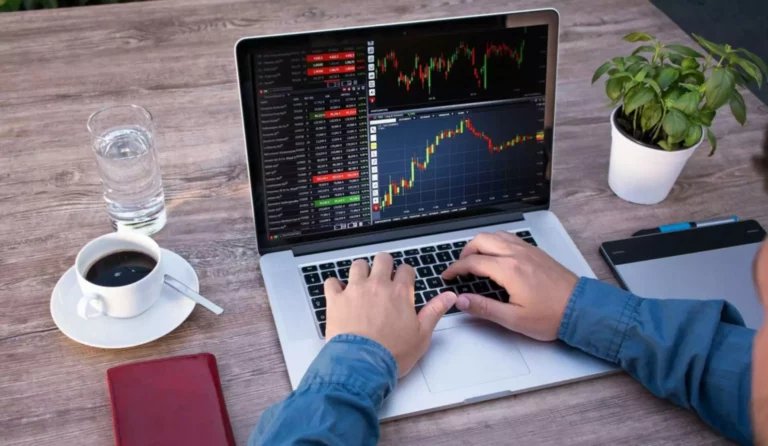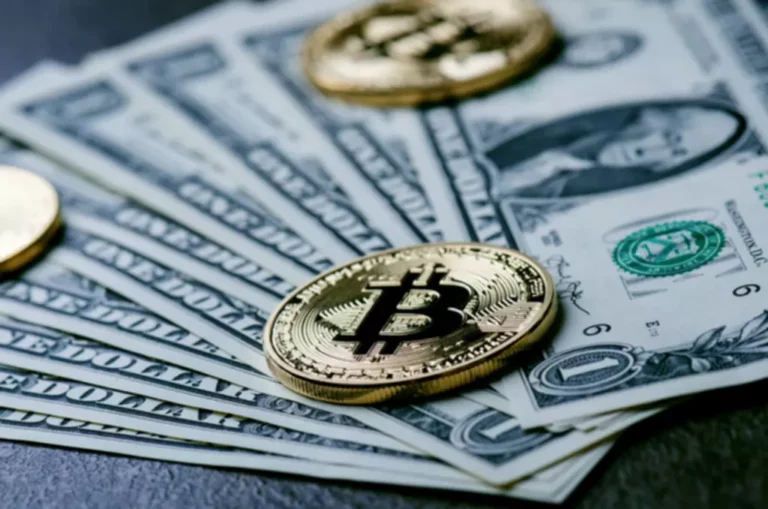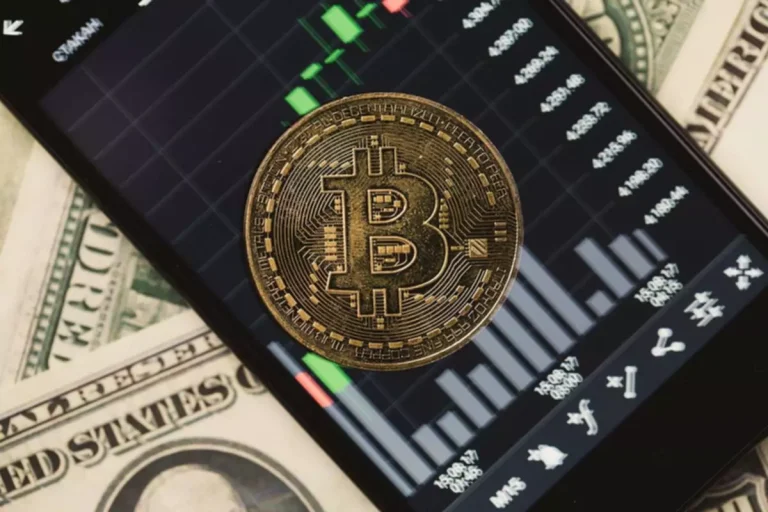Where to Trade Forex: Understanding the Different Types of Forex Brokers
Choosing a reliable and trustworthy forex broker is a key step in successful forex trading. Before you pick a broker, consider the platform features and resources. By doing your research and choosing a forex broker that meets your needs, you can trade with confidence. However, DMA accounts can have high entry requirements and not all brokers provide them. You sort of get the best of both worlds as they are easily accessible yet still have very favourable trading conditions including deep liuqidity pools and no dealing desk interference. This means you can trade forex with tight spreads, minimal slippage and full transparency.
- Brokers facilitate price discovery and market liquidity while providing a trading platform for trading execution.
- An important consideration when opening a retail forex trading account involves choosing among the different types of forex brokers available to handle your forex transactions.
- However, they offer markup-free spreads (or raw spreads in jargon) as low as 0.1 pip, and order execution speed as low as 0.04 seconds.
- Then the other kind of broker is called a market maker, also known as a dealing desk.
- FBS offers traders dedicated accounts that align with their unique trading styles and objectives.
A broker with excellent customer service and support on a timely communication response, and a willingness to address queries and concerns are essential. Additionally, ensuring the broker is regulated and licensed as well as considering reputation, transparency, and availability of educational resources are essential steps in making an informed decision. Traditional Offline Brokers offer a more personalized service, with face-to-face interactions and tailored advice.
CMC Markets: Best Overall and Best for Range of Offerings
However, you always have to keep in mind that the beauty of the spread from the broker’s point of view is that it’s taken from your leveraged trade size, not your account balance size. B-Book brokers are those who process clients’ trades inhouse and act as a counterparty to their trades. Simply put, if you place a buy order with a B-Book broker, they will be selling to you and vice versa.

This means they may not offer the best prices if they don’t want to take on any more risk. Then the other kind of broker is called a market maker, also known as a dealing desk. They’re different from a straight-through processing broker in that they take the other side of your trade rather than passing it onto the market. If you buy EUR/USD, they sell EUR/USD to you and take on the position themselves. The ECN network often allows trade sizes upwards of 0.1 lots, and if you are wanting to trade less than that, then a broker that offers an alternative form of market access may be better suited. ECN brokers are another type of NDD broker that provide access to the electronic communications network for liquidity.
Saxo Capital Markets: Best for Advanced Traders
The most popular version is also likely to carry a narrower bid/ask spread, lowering trading costs. Forex trading can be complicated, but it’s certainly possible for beginning investors to diversify their portfolios by trading currencies and other forex assets. It would be wise to exercise caution and take the time to educate yourself on the assets in which you wish to trade. There’s a wealth of education and research resources available through a number of forex trading platforms, so take the time to avail yourself of this information. In the forex markets, currencies trade against each other as exchange rate pairs. The EUR/USD would be a currency pair for trading the euro against the U.S. dollar, for example.

The introducing broker denotes a smaller operation that refers clients to a large broker in exchange for rebates or other incentives. In white labeling, the small company rebrands the large broker’s trading platform, allowing the big operation to execute trades in the background. Both practices may increase operating costs, encouraging these businesses to widen bid/ask spreads and increase fees. When it comes to trading forex, one of the most crucial decisions you’ll have to make is choosing the right forex broker. A forex broker acts as an intermediary between you, the trader, and the forex market, providing you with access to the global currency exchange marketplace. With so many options available, it can be overwhelming to decide which type of forex broker is best suited for your trading needs.
Best Forex Brokers for 2023
This allows for greater transparency and price competition between different liquidity providers, leading to tighter spreads and better execution. Unlike traditional forex brokers, CFD brokers do not take the other side of a trader’s trades, making them suitable for traders who want to execute large volumes of trades in a short period of time. CFD brokers typically charge commission fees and may offer leverage on certain instruments. There are literally thousands of forex brokers that you can trade currencies online with. The majority of them will have a generous selection of major, minor and exotic currency pairs which you can buy and sell in your own time.
Put several of these accounts side by side with real-time quotes from a large financial site and you’ll quickly find out which forex brokers are offering the best bid and ask prices under normal market conditions. If possible, take a second look just after a Federal Reserve rate decision or other market-moving events to see how the currency pairs move in highly volatile conditions. An important consideration when opening a types of brokers in forex retail forex trading account involves choosing among the different types of forex brokers available to handle your forex transactions. This represents an important decision, because the type of forex broker chosen can affect both the quality of service you receive, as well as your transaction fees and dealing spreads. STP brokers are similar to ECN brokers in that they also connect their clients to the interbank market.
FBS Awarded for Best Islamic Forex Account
A broker is a regulated professional who buys and sells financial instruments on behalf of their clients in financial markets. Their core function revolves around facilitating transactions, ensuring that both parties achieve their desired outcomes while adhering to regulatory standards. ECN brokers connect their traders’ orders directly with counterparties in the interbank market. They are the gateway through which their clients’ orders are passed to the marketplace where they interact with the orders from other market participants in the Electronic Communication Network.
And these participants can be banks, hedge funds, corporations, and retail traders, as well as other brokers. With many jurisdictions restricting the access of foreign brokers to their residents, forex brokers can also be classified based on the countries in which they operate. Forex brokers, European forex brokers, Canadian forex brokers, Australian forex brokers, offshore brokers, and https://www.xcritical.com/ others. However, since interbank market spreads fluctuate, ECN brokers cannot afford to provide stable spreads because doing so would eliminate their compensation. This may seem like the easiest option for a Forex trader, and for some it is. However, most participants in the interbank market only trade in extremely massive amounts, so a substantial initial commitment is necessary.
Types of Forex Brokers
Due to their revenue model being linked to volume, and not result, NDD brokers are effectively hoping you can trade more volume consistently, so that the spread is paid more often. This is more in line with your own hopes as a trader (to grow your account value), and as such is our own preference, but what is right for you, is left up to you. When you trade with an A-book broker, you are essentially trading with the market. Your order goes straight to the source of the market price, without interference from the broker. Brokers usually offer a variety of educational resources, including webinars, articles, guides and market analysis to help clients make informed trading decisions.

The real execution time spreads and commissions can only be verified on a live trading account. Regardless of your trading budget, you’ll need to choose a dependable method for depositing and withdrawing funds for your live trading account. PayPal has grown in popularity as a way to fund forex trading accounts, due to its extensive international presence and wide range of supported currencies. Head over to our guide to the best PayPal forex brokers to learn more about using PayPal to fund your account, and to see our list of the best forex brokers that accept PayPal. STP brokers act as agents and pass their clients’ orders to their liquidity providers who are part of the interbank market.
How to Choose a Forex Broker
All ECN brokers have access to the same feed and trade at the prices quoted. They’re popular because no trader should have a built-in advantage over the other. Forex Brokers serve as gateways to the largest financial market globally.
Benzinga’s Favorite Forex Brokers
Spreads that ECN brokers charge in addition to the spreads (the difference between the interbank Buy and Sell rates), or fixed transaction execution charges, are how ECN brokers generate money. Typically a forex broker will offer you a price from the banks where they have lines of credit and access to forex liquidity. Many forex brokers use multiple banks for pricing, and they’ll offer you the best one available.
There is no central exchange, so it is impossible to have all EURUSD buy trades, for example, matched by EURUSD sell trades. ECN brokers technically take orders from clients and send them directly to a pool of liquidity providers. It becomes even more difficult to choose when a forex broker is hell-bent on ensuring that none of their customers enjoy consistent profits.

Leave a Reply